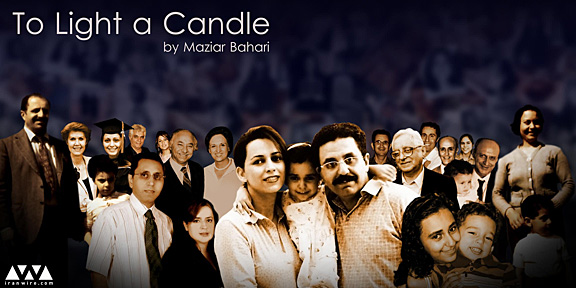In an effort to promote awareness of the struggles of the Baha’i faith in Iran, a film will be presented Friday, Feb. 27.
Toledo’s Baha’i community is partnering with The University of Toledo’s Center for Religious Understanding to offer two showings of “To Light a Candle” at 5 and 7 p.m. in Student Union Room 2591.
 The screenings will be followed by interfaith panel discussions.
The screenings will be followed by interfaith panel discussions.
“Young people around the globe are facing hardships in obtaining an education due to inter- and intra-religious intolerance,” said Dr. Jennifer Hill, UT assistant professor of physiology, who is a member of the Baha’i faith.
In Iran, it is illegal for members of the Baha’i faith, the country’s largest religious minority, to teach or study at universities. However, the Baha’i Institute for Higher Education was established in 1987; the institute consists of informal courses taught in people’s homes via online lectures and mail correspondence. If caught, the participants and teachers in these classes are threatened and jailed.
The film was created by Maziar Bahari, a journalist featured in political satirist Jon Stewart’s 2014 film “Rosewater.” Bahari was incarcerated by the Iranian government in 2009 after disputed presidential elections in the country. Before his arrest, he worked as a journalist and filmmaker, creating pieces that objectively analyzed Iranian stereotypes.
Bahari’s film uses live footage and interviews to explore the struggles that Iranian Baha’is endure on a daily basis.
“Just look at the case of Malala Yousafzai, shot and wounded in Pakistan for being an advocate of education for young women,” Hill said. “In the case of Iran, the government knows it is being watched and has responded in the past to pressure to show leniency to Baha’is who have been arrested for the ‘crime’ of teaching Baha’i youth. The more the international community and people of compassion from every faith stand up and say this violation of a basic human right cannot be ignored, the more likely reform becomes.”
The panel following the film will include the Rev. Ed Heilman of Park Congregational United Church of Christ, Drs. Abdel-Wahab Soliman and Samina Hasan of the Islamic Center of Greater Toledo, and others working to promote interfaith dialogue in Toledo.
“Rather than focusing on politics or scapegoating any particular religion, we hope to address the question of how people from all backgrounds can promote and protect educational opportunities for young people and improve religious understanding in the process,” Hill said.
Bahari’s film ignited the Education is Not a Crime campaign that works toward education equality among all Iranian religions. After the screening, viewers are invited to sign a petition asking UT to recognize credits earned through the Baha’i Institute for Higher Education. They also are invited to record their responses to the film and upload them to the campaign’s website.
To learn more about the effort, visit educationisnotacrime.me. For additional information, contact Hill at JenniferW.Hill@utoledo.edu.